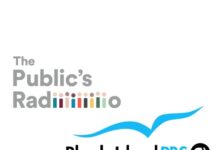
(By Mike McVay) There is no better Commercial Message on your radio station than the Promotional Message for your station. Promos that image the station, promote contests, events, and your product, need to be well written and well produced. In a promo you’re selling to the audience what’s important to your station’s success and as such the message should be well written, excellently voiced and well produced.
My style of writing was influenced by several legendary programmers and continued to evolve over the years. Chuck Blore, who was an excellent program director, launched his own television production company where he employed the concept of “brainstorming” to create unique imaging that screamed for ones’ attention. Blore is best known for The Remarkable Mouth television commercial. Blore taught me to look for the audio magnet that attract attention.
Jack McCoy, a programmer who used his skills to evolve into an amazing marketer and consultant, taught many of us to create a big, imaginative sound, when he launched The Last Contest. He followed that with the prize catalog and continued to mentor many as to the power of sound. McCoy wrote contest promos in a style that was termed the reverse pyramid. Most people start with the prize and how you can win it. McCoy started with the benefit and imagined the listener into the prize.
For example, “Imagine the ooohs and ahhhs of your friends as you round the corner in your brand-new Porsche 911 Turbocharged supercar.” Another example, “The grit of the sidewalk crunches under your shoes as you walk up the driveway to your newly renovated 5,000 square foot home … and as you lean against the new GM SUV in that driveway, you realize that listening to (WXXX) changed your life.” Visually written, focused on the benefit of winning more so than the prize, and an emphasis on the fantasy of being recognized by your friends and family.
The key to writing in such a fashion starts with understanding the benefit to the listener of winning the prize. Don’t get lost in the prize. Focus on why someone wants to win that prize. Write about that. Write visually when describing the prize, but again, stay focused on what the prize means to someone who wins it. A trip to Hawaii means escape as its too far away to rush back if the workplace needs you. A sexy sports car means that you’ll impress your friends. Winning cash means relief, either from the stress of paying bills, or it mean “fun money” and you can treat yourself and your loved ones.
Produce your messaging in a way that matches the image of your station. If you have an exciting, energetic, high-energy station, then your promotional message should match that environment. The challenge is to make it stand out. That’s where production and the voiceover artist come into play.
Sound effects, music changes, production tricks like doubling a voice or a classic tactic like backwards echo, can enhance your message. It can also make it annoying. Adding in pings, swooshes, zips, zaps and intrusive music can make a promotional message overwhelming and irritating to hear. These elements need to be used appropriately and sparingly. Think of it as adding a touch of spice to a dish that you’re creating in your kitchen. Used properly, it can emphasize the promo’s message and make it memorable.
The voiceover talent for your station should be selected based on the image you want to be forward facing to your audience. That voice, the one you use, is another part of how your station is identified in the listeners memory. Sometimes stations change their voice talent because a new program director has a favorite, or because they simply want to leave their fingerprints on the station, but a change for changes sake seldom delivers positive results.
There are other times when change is warranted and the freshness of the new sound attracts a new audience. Knowing the objective, before you make the change, increases your chance of success. The more memorable your talent and their delivery, the more likely it is that their voice will become a part of your audio signature. History supports that theory. Len “Boom-Boom” Goldberg on WMMS/Cleveland and WHTZ/NYC, Keith Eubanks on 99X/Atlanta, Johnny Donovan on WABC/NYC … and more.
Listen worldwide for imaging examples and search for those stations that are similarly formatted to learn from their promotional messaging, their imaging and the “sound” that they’re wrapping around their product. However, don’t use these examples to plagiarize, but use them to spark new sounds, new ways to stand out and how to make your audio product memorable.
Mike McVay is President of McVay Media and can be reached at [email protected]






Best essay writing services provides fair and adequate feedback by mail to all existing companies that write for money.
Now many people have difficulties and problems concerning just the same writing of any written work. Therefore, it is necessary to think about it, I think it will be useful. But I am very glad that I was able to find them, now I already know how to write an essay to make it successful. So be sure to take a look and get acquainted. It will certainly be useful if you contact them. By the way, many students do this, read the information there and start doing it. That’s how they learn. The material is very accessible there, so everyone can understand and apply it for themselves. Good luck and success, I hope it helped.
It’s very nice when you have your style of writing, my writing always looks like a mess. When I need to write some paper for college, I usually apply to services, which I found on Writing Judge.
Promos are nice, Mike.
How ’bout concentrating on those maudlin, meandering and myopic spots that clutter the phusterclucks of radio’s commercial landscape?
I mean, after all, if a creative and appealing promo can be cut, so too, can equally compelling spots be churned out.
I realize I ask for more than I should, what with most of the writers already having been fed to the crows, but the alternatives have been and continue to be worse.